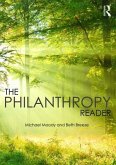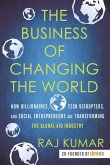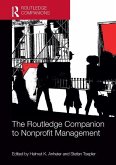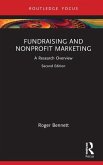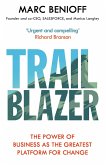Effective Altruism is a movement and a philosophy that has reinvigorated the debate about the nature of beneficence. At base, it is the consistent application of microeconomic principles to beneficent action. The movement has exposed that many forms of giving do little good (or do active harm), but others do tremendous good.
Questioning Beneficence uses Effective Altruism as a launch pad to ask hard questions about beneficence more generally. Must we be Effective Altruists, or are Effective Altruism and the ideas driving the movement a mistake? How much should we give-if anything- and how should we give it? What are the respective roles of different kinds of institutions? Is charity anti-democratic and do billionaire philanthropists have too much power? Is Effective Altruism just utilitarianism in disguise?
Questioning Beneficence is written by four philosophers, each with distinct points of view. It introduces a new standard for debating ideas in philosophy aseach author poses and answers three questions and each of his three co-authors responds to those questions in turn. Finally, the first author replies to his co-authors' responses. Throughout the book, there is a spirit of curiosity, intellectual risk taking, and truth-seeking, rather than point-scoring and one-upmanship. This book demonstrates what open-minded, real dialogue on an important issue can be at its very best.
Key Features:
Introduces a new roundtable format for philosophical debates: each of four authors takes the lead in constructing and answering three questions, each co-author then responds, and the first author then replies to the others' responses.Explores salient philosophical questions raised by beneficence, likeCan philanthropy be undemocratic?Why are people so bad at charity and what can we do about it?How important is beneficence compared to other values?Can Effective Altruism be part of a meaningful moral life?Consistently written in a clear andengaging style, suitable for both undergraduate students and curious general readers
Questioning Beneficence uses Effective Altruism as a launch pad to ask hard questions about beneficence more generally. Must we be Effective Altruists, or are Effective Altruism and the ideas driving the movement a mistake? How much should we give-if anything- and how should we give it? What are the respective roles of different kinds of institutions? Is charity anti-democratic and do billionaire philanthropists have too much power? Is Effective Altruism just utilitarianism in disguise?
Questioning Beneficence is written by four philosophers, each with distinct points of view. It introduces a new standard for debating ideas in philosophy aseach author poses and answers three questions and each of his three co-authors responds to those questions in turn. Finally, the first author replies to his co-authors' responses. Throughout the book, there is a spirit of curiosity, intellectual risk taking, and truth-seeking, rather than point-scoring and one-upmanship. This book demonstrates what open-minded, real dialogue on an important issue can be at its very best.
Key Features:
Introduces a new roundtable format for philosophical debates: each of four authors takes the lead in constructing and answering three questions, each co-author then responds, and the first author then replies to the others' responses.Explores salient philosophical questions raised by beneficence, likeCan philanthropy be undemocratic?Why are people so bad at charity and what can we do about it?How important is beneficence compared to other values?Can Effective Altruism be part of a meaningful moral life?Consistently written in a clear andengaging style, suitable for both undergraduate students and curious general readers
"This is an excellent book, and it provides a helpful survey of the area while simultaneously exploring many arguments and ideas in significant depth. Arnold, Brennan, Chappell, and Davis provide a good diversity of perspectives on beneficence-Effective Altruism in particular-and when it is good, just, virtuous, and morally required. In each of the four parts, the authors collectively demonstrate that the issues discussed are rich and multidimensional; there are often more than just two sides to take (sometimes there are at least four!)." - Theron Pummer, University of Saint Andrews, UK


